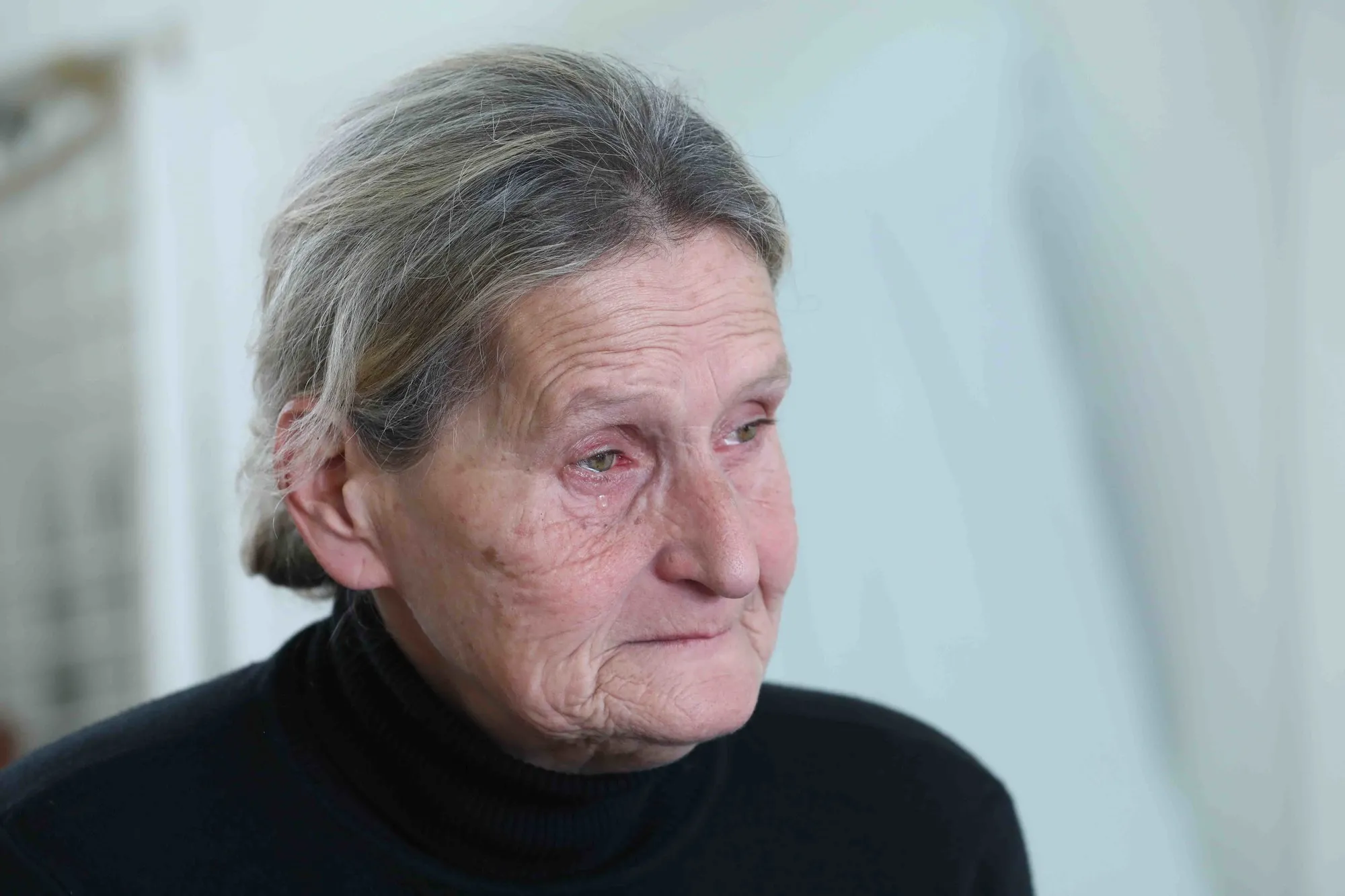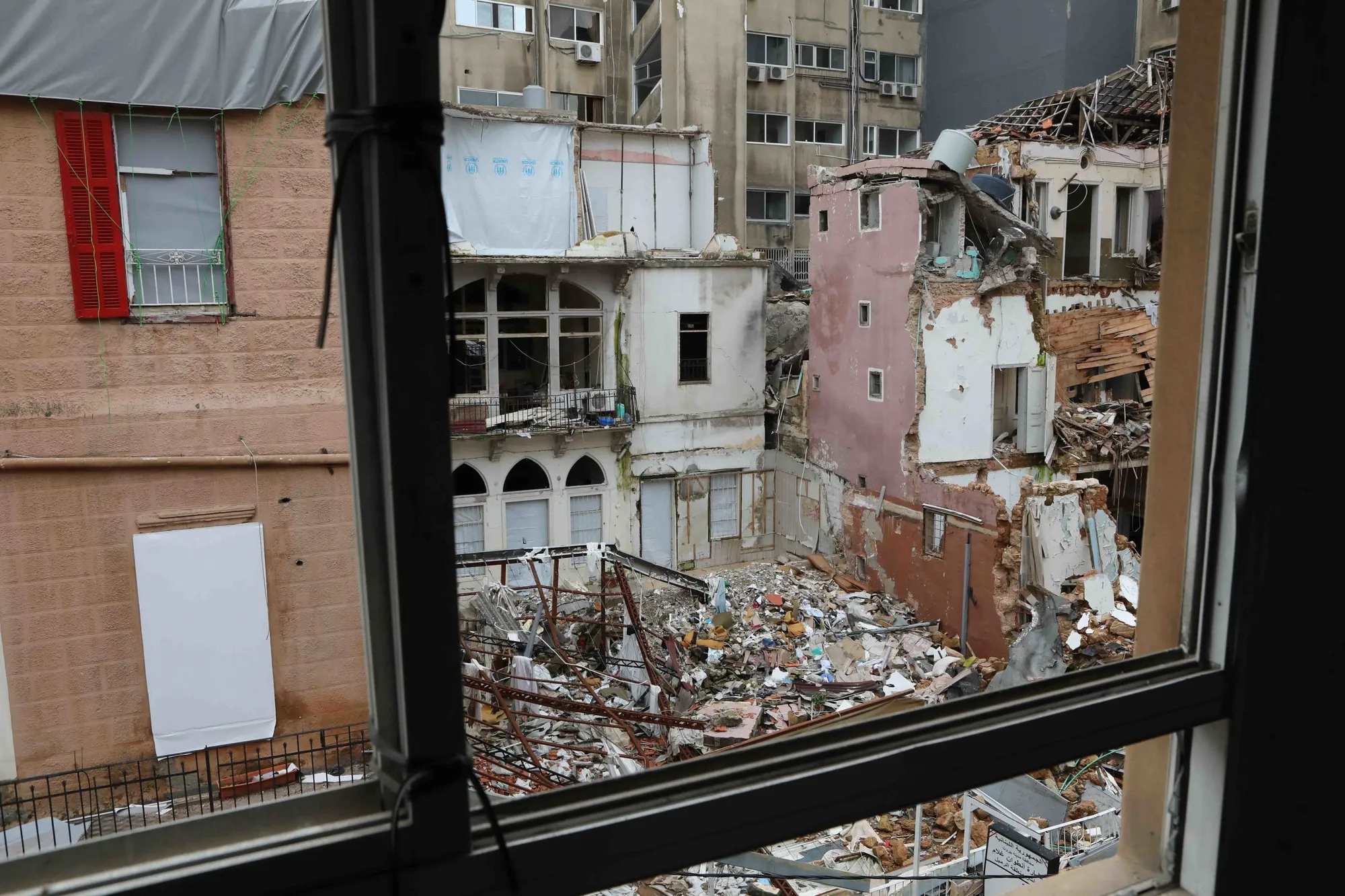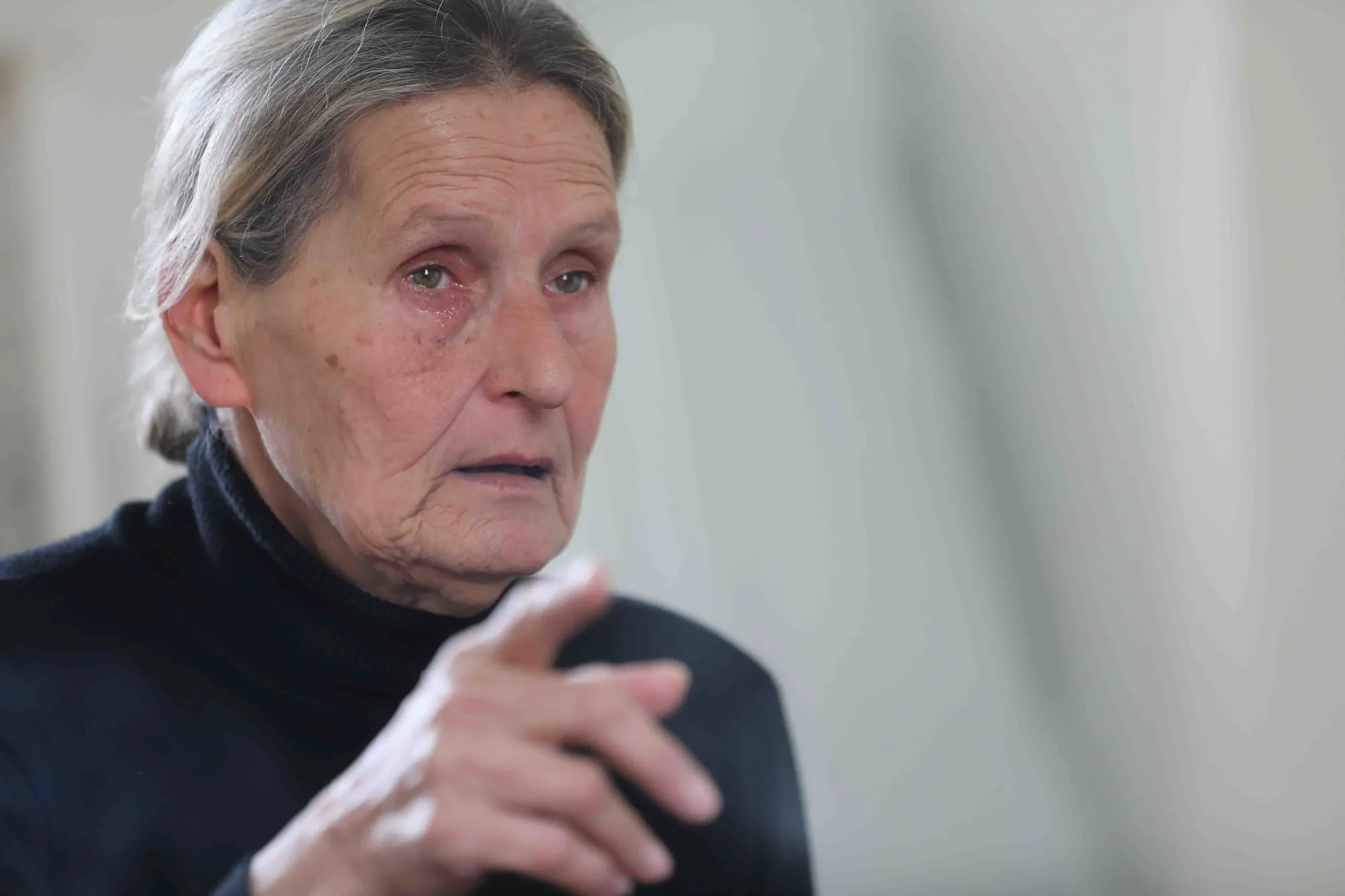When the first explosion swept through the city, Hayat and her granddaughter were watering flowers in the parking lot. The pair took refuge in a nearby church. Debris from the blast injured Hayat’s arm and left her body covered in broken glass.
“If I had stayed outside, I probably would have been killed,” she says.
When she arrived at the hospital to have her arm treated, Hayat saw the scope of the devastation caused by the blasts. “I lived through the war here in Beirut and had never seen such scenes or smelled such odors in a hospital,” she says.
She called Chady after she returned home.
“His cell phone was ringing, but he did not answer,” she says before pausing and fixing her gaze on a point on the ground. “I spent the night at my window, listening to every noise, waiting for Chady to come back.”
“My son is deaf, so he cannot hear if you call him and, therefore, could not respond to rescuers to be located,” Hayat says.
Chady’s body was found buried in the rubble two days after the blasts.
In her modest, newly restored house, Hayat points to her son’s bedroom and says, “Look, his things are still there. Even today, I am wearing his trousers.”
Tears running down her cheeks, she continues, “Sometimes I forget what happened and start to wait for his return. I finish cooking and I begin to expect him. When the internet or any electrical equipment breaks down, I tell myself that Chady will fix it when he gets back.”
“I think about him every single moment of the day.”
Six months on, CARE is supporting many women in Beirut like Hayat who have shown remarkable resilience in the aftermath of the explosions. The women are moving forward with rebuilding the city, ensuring women and girls are at the forefront of the effort. Special care is being taken to elevate traditionally marginalized voices to make certain the recovery process reflects the needs of everyone. With the support of CARE, local and international NGOs, and community groups, the people of Beirut are restoring their homes and businesses, putting the pieces of their lives back together as best as they can.
Editor’s note: Story was originally published Aug. 17, 2020



